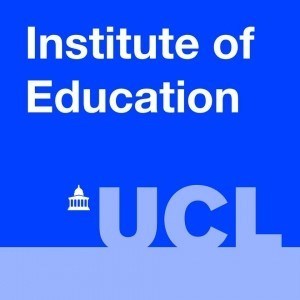Photos of university / #universityofleeds
Gender Studies is an exciting area of scholarship. Drawing insights from across many academic disciplines, Gender Studies explores the dynamics of relations between women and men in the past, present and future.
If you choose an MA in Gender Studies, you will engage with challenging, cutting-edge ideas at the forefront of developments within contemporary thought.
Our MA in Gender Studies is distinctive in the wide range of disciplines and theoretical and methodological perspectives that contribute to the programme, and in the number of options available to you as a student.
By the end of the course, you will have an advanced understanding of the nature of gender studies, its interdisciplinary frameworks and the range of theoretical perspectives and methods.
You will also have the ability to analyse social and cultural phenomena through the lens of gender in a way that appreciates a range of disciplinary perspectives.
You will have specific knowledge of some aspects of gender studies, both theoretical and applied, and the ability to conduct a piece of individual research, using appropriate conceptual frameworks and methods, on an aspect of gender studies.
Postgraduate Diploma in Gender Studies
Available on a 12-month full-time or 24-month part-time basis, the Postgraduate Diploma in Gender Studies covers similar ground to the MA, but does not include the dissertation module.
On the basis of a good performance in a full-time student's first semester, or a part-timer's first year, students initially registered for the Diploma may be transferred onto the corresponding MA.
MA Gender Studies is available on a 12-month full-time or 24-month part-time basis. The course has five modules: three compulsory, two elective.
Compulsory modulesResearching Gender provides you with the opportunity to focus on researching gender with a particular emphasis on feminist research practices. In exploring a range of disciplinary perspectives, you will focus on epistemological, methodological and ethical considerations. In particular, the course looks at these considerations with relation to research design and methods.
The module also encourages you to think beyond disciplinary boundaries and develop an understanding of the possibilities of interdisciplinary research. You will critically analyse research practice from a gender and feminist perspective, review and appraise research findings, and synthesise information and knowledge from a range of disciplinary and interdisciplinary sources and perspectives.
Theorising Gender engages with contemporary theoretical approaches within gender studies. Exploring the social and individual processes involved in the enactment of gender relations, the module investigates alternative, complementary and conflicting explanations for the source and operation of gender.
Investigating the historical, social and individual significance of gender, you will examine various areas of social life where gender shapes interactions and forms meaning: in particular, you will consider family roles, reproductive technologies, citizenship, sexuality, culture and personal biography.
Dissertation allows you to tailor your own programme of training and research in consultation with a member of staff drawn from the centre's MA/PhD supervisory panel.
Elective modulesIn addition to the compulsory modules, you also choose two modules from the following list.
- Feminist Cultural Theory
- Revisioning Histories of Modernism (Femininity, Modernity, Representation)
- Feminist Criticism and Practice in the Contemporary Visual Arts
- Language and Politics
- Global Genders
- Que(e)rying Sexualities
- Contested Bodies
- Gender and Health
- Childbirth in Seventeenth Century England
- Representing Women in Medieval Literature
- Critical Musicology
- Gender, Globalisation and Development
- 'Race', Identity and Culture in the Black Atlantic
For more information about both the compulsory and elective modules, please consult the module catalogue
Full-time students may take either three modules in Semester 1 and one in Semester 2, as well as the dissertation, or two modules in Semester 1 and two in Semester 2, as well as the dissertation.
Part-time students have some flexibility as to when they take their modules, but we do advise candidates to consider the credit load between semesters. One pattern may be to take three modules in the first year, with two in Semester 1 and one in Semester 2. This leaves one module and the dissertation for the second year.
Want to improve your English level for admission?
Prepare for the program requirements with English Online by the British Council.
- ✔️ Flexible study schedule
- ✔️ Experienced teachers
- ✔️ Certificate upon completion
📘 Recommended for students with an IELTS level of 6.0 or below.
Tuition fees and/or maintence may be paid in part, or in full, by an awarding body, a bursary or other postgraduate grant.
For students applying to the Centre for Gender Studies, the most likely sources of funding will be the following bodies.
- Economic and Social Research Council studentships - for home and EU students
- Arts and Humanities Research Council - for home and EU students
- University scholarships - for all students
- Opportunities for self-funding








